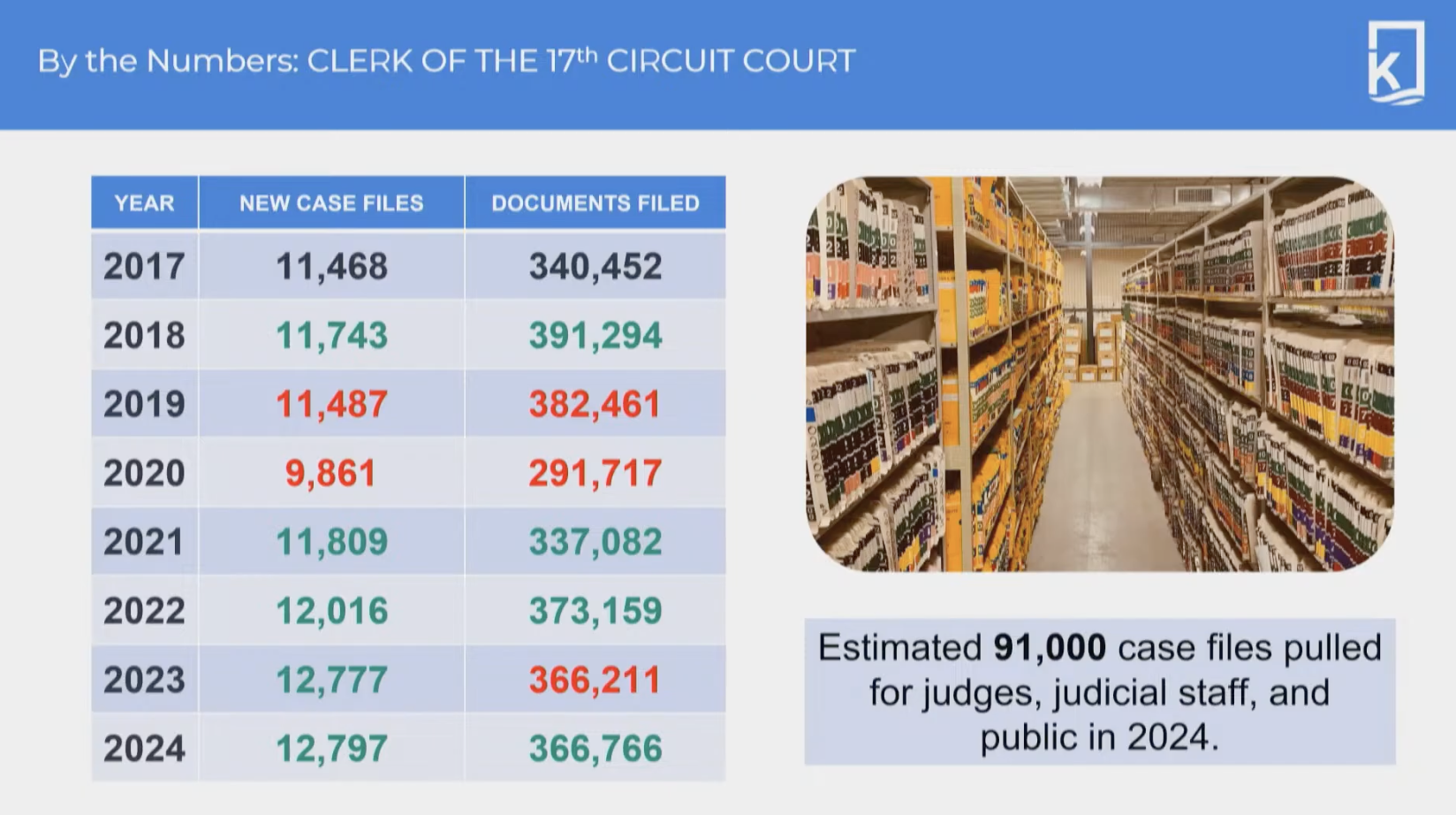Kent County Clerk’s 2024 Annual Report Recap
I watched this meeting here: https://www.youtube.com/live/cpni8_gLyDM?si=w2EO3MQgjzAYCW6u&t=550
At the November 6, 2025 Kent County Board of Commissioners meeting, Clerk and Register of Deeds Lisa Posthumus Lyons presented her annual report for the 2024 calendar year, highlighting the key functions, achievements, and challenges of her office. The report covered four major areas: Vital Records, Elections, Register of Deeds, and the Circuit Court Clerk’s Office. I found the information interesting so thought you might too. Take a look!
Vital Records: Steady Growth and Rebound
Lyons shared that 2024 saw a rebound in birth filings for the first time since 2020, while deaths rose slightly from the prior year but remained below the 2021 high. Marriage licenses returned to pre-pandemic levels, and CPL (concealed pistol license) applications continued to rise, as is typical in presidential election years.
Nearly 98,000 copies of existing records were issued in 2024, representing 36,000 individual requests — averaging about 275 customer transactions per day, evenly split between online and in-person services.
Elections: Early Voting Implementation
One of the most significant updates of the year was the successful rollout of early voting in 2024, the first year this option was available statewide.
Lyons reported that Kent County conducted four elections in 2024, including the Presidential Primary, marking the 30th election she has overseen during her nine-year tenure.
Voter turnout methods broke down as follows:
38% absentee ballots
26% early in-person
26% Election Day voting
She noted the positive response from voters, long lines but a “jovial, celebratory atmosphere.” Going forward, her team will track whether this new pattern stabilizes to roughly one-third per category, as seen in other states.
Register of Deeds: Modest Recovery and Fraud Protection
Lyons described 2024 as a year of modest recovery in property recordings, which remain sensitive to real estate trends. The total number of filings was slightly higher than the record low of 2023 but still below the highs of 2021.
With a $30 recording fee per document, these fluctuations directly affect county revenue and the Automation Fund(commonly called the “Tech Fund”), which retains $5 from each transaction to support technology improvements.
To improve public protection, the Fraud Notify Program was launched, alerting property owners when documents are filed on their parcels, a proactive defense against deed and title fraud. So far, about 15,000 parcels are enrolled, and Lyons encouraged broader participation.
Circuit Court Clerk’s Office: Toward a Paperless Future
The Circuit Court Clerk’s Office handled tens of thousands of case filings in 2024, maintaining an enormous archive of physical and digital records.
A major milestone was progress toward “Operation Paperless,” a collaborative effort with the 17th Circuit Court to expand electronic filing (e-filing) beyond the business docket. This modernization launched successfully in early 2025 and will dramatically reduce paper handling while improving access for attorneys, judges, and the public.
Technology and Transparency
Several digital initiatives advanced throughout the year:
The Fraud Notify system for property owners.
A new election results archive, providing searchable results back to 2002 (with plans to add older data as funding is available).
Vitals Access, a new online platform replacing Webtex, offering faster and more user-friendly record searches.
Lyons emphasized her office’s commitment to transparency, particularly in elections, noting that Kent County hosted local, national, and even international media during the 2024 election cycle. The county transformed its lobby into a media hub, allowing reporters to witness the canvassing process and reinforcing public confidence in local elections.
Budget and Fiscal Overview
Responding to questions about rising budget figures, Lyons clarified that the apparent 25% increase in expenditureslargely reflects the new state-mandated early voting costs, which the county initially fronts and is later reimbursed for by the state.
“Our expenses haven’t drastically increased — the IOUs from the state have,” Lyons joked, comparing it to “carrying a suitcase full of IOUs from Dumb and Dumber.”
Overall, the clerk’s office continues to operate efficiently while adapting to these new funding realities.
Looking Ahead
Key upcoming initiatives and challenges include:
Exploring online business registration filing and digitally certified records for residents who need official documents remotely (for example, while traveling).
Expanding public e-recording access so individuals — not just title companies — can file property documents online.
Continuing the paperless transition in court filings.
Preparing for the next generation of voting equipment, as the current machines reach the end of their 10-year contracts post-2026. Lyons noted potential future costs to counties and townships as state and federal funding sources shift.
Addressing reduced revenue in the Automation Fund due to slower real estate activity, which may eventually require reallocating some expenses to the general fund.





